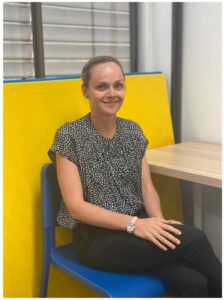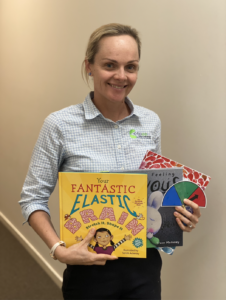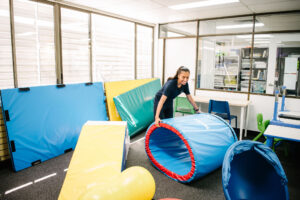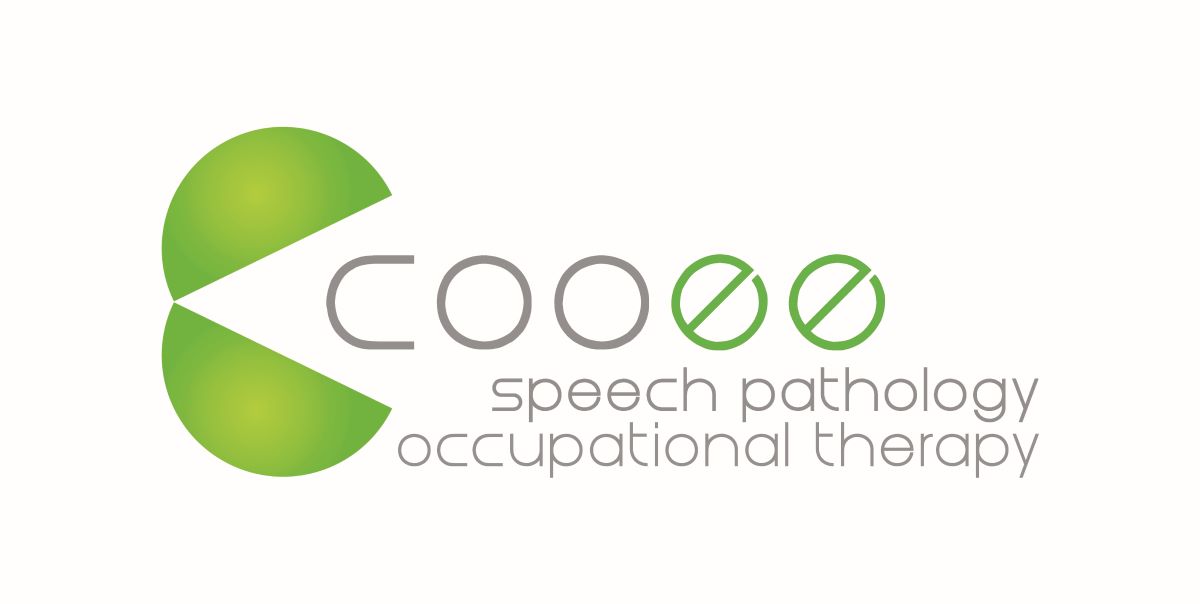Top tips to support your child’s regulation and how OT can help.

As an Occupational Therapist (It’s Anna here) I am often asked by parents how to best support a child when they are having ‘big feelings’ or experiencing difficulties with regulating their emotions.
In 2020 one of the Cooee Occupational Therapists Helena wrote a blog on How do children learn to self regulate – this is a great place to start reading!
Today I thought I would share some of my top tips to help your child when they are experiencing big feelings.
1. Connection with your child is the priority.
A child can’t access their ‘thinking brain’ when they are in a heightened state of distress. Connection can involve getting down on the child’s level and acknowledging their feelings so that they feel heard. This will help your child calm down and move into a more integrated state.
For more information on how our brain works when we are experiencing big feelings refer to Dan Diegel’s hand model of the brain video: Dr Daniel Siegel presenting a Hand Model of the Brain – YouTube
2. Practice regulation strategies when your child is calm, rather when they are starting to show signs of emotional distress.

There are many great books that discuss emotions and strategies to cope, including Trace Moroney books and books by Karen Young. You can also model regulation strategies to your child by using ‘think alouds’ or talking through a situation when you have heightened emotions, and how you are going to manage those feelings.
3. Play is a safe environment for your child to practice skills to support regulation such as flexibility, problem solving and transitioning between activities.
Spend some time playing with your child and practice moving to different activities and disrupting play to create problems. Practicing these skills inside a play scenario will help your child to stay regulated when transitioning or when unexpected situations occur.
4. Use a visual schedule and visual timer to provide predictability and avoid anxiety around the unknown, which can lead to dysregulation.
5. Set up a ‘calm corner’ at home or in the classroom for a child to retreat to if they are feeling overwhelmed and need some space to calm down.
An example of this could be a tent with cushions and a favourite soft toy. 
6. Activities involving proprioceptive (resistance and body position information detected in tendons and muscles) and vestibular (movement and position in space) input can be very calming for our body and help to organise the nervous system.
Try to incorporate activities involving these kinds of input throughout the day (jumping on a trampoline, animal walks, swinging).
7. When a child is dysregulated often we overlook basic needs of our body, and whether these are being met.
Factors such as nutrition, sleep and exercise play a big role in keeping a child regulated and it’s worth addressing these basic needs.
8. Remember that a child can’t be expected to independently regulate until they are at least 12 years old.
In fact some research shows that the thinking part of the brain that helps us with self control isn’t fully developed until our 20s for girls and 30s in boys. We need to help a child co-regulate so that they can practice strategies and skills and create neurological pathways that are well trodden.
How OT can help:
Occupational Therapists can help your child develop emotional regulation skills by:
- Conducting an assessment to investigate environmental or sensory factors that may be contributing to difficulties with emotional regulation.
- Intervention using the Zones of Regulation, Alert Program or Interoception Curriculum to help your child understand emotions and body cues, and how we can bring our body back to a regulated state.
- Parent coaching on co-regulation strategies to support your child.
If you would like further information regarding therapy or the intervention process, please don’t hesitate to get in touch with our Occupational Therapists via [email protected] or call us in the clinic on (07) 32654495.
Anna Kelly
Occupational Therapist
